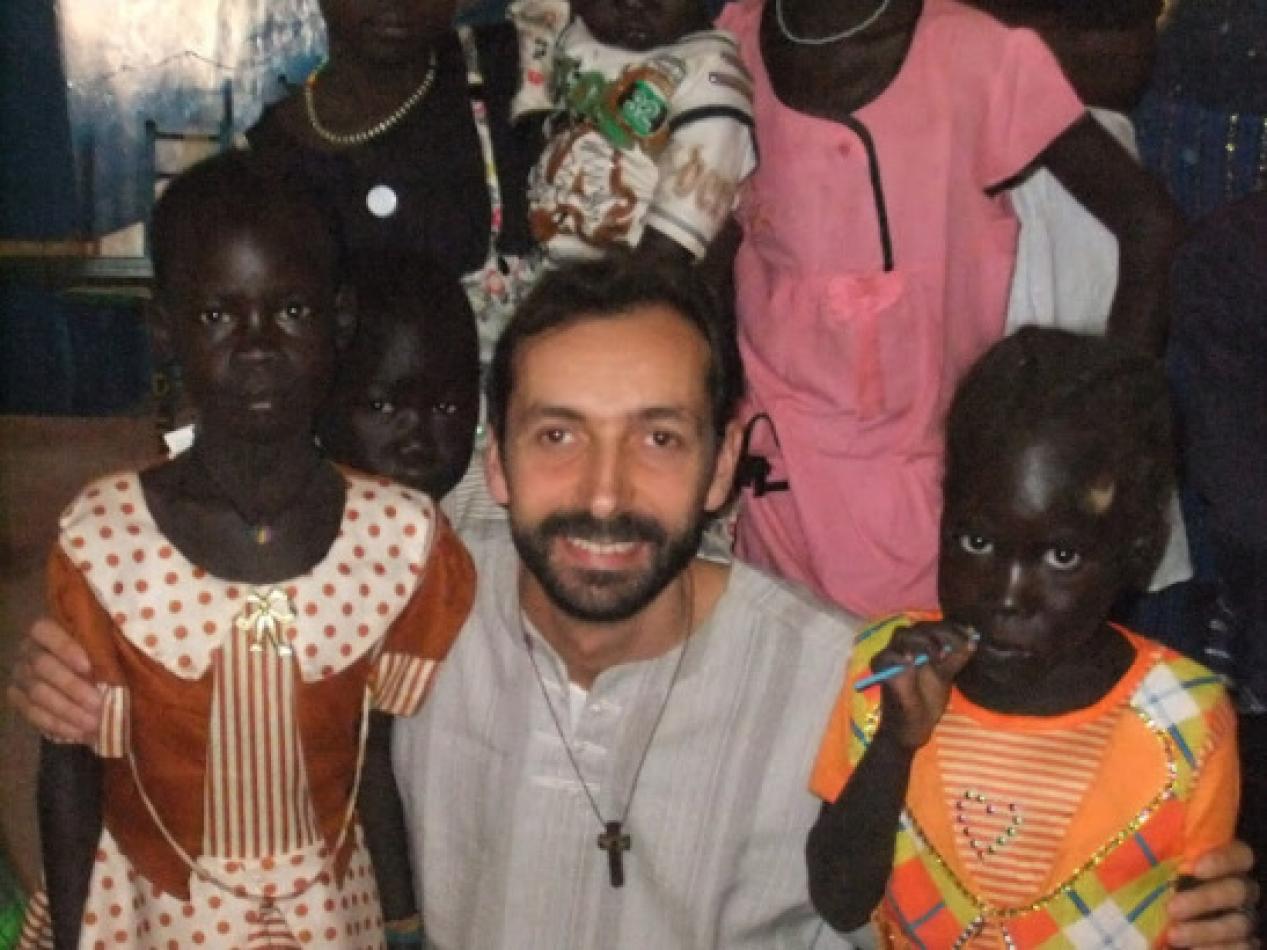Daniel Comboni
Comboni Missionaries
Institutional area
Other links
Newsletter
Friday, February 4, 2022
I was called to a missionary service as a Comboni Brother in South Sudan, working in health care promotion, first as a faculty member in a school for obstetricians and nurses and, for the past four years, I have been entrusted with the responsibility of being the acting medical director and administrator of Mary Immaculate Hospital, located in the Lakes Region, 70 km from the capital Rumbek.
With a population of about 12 million people and a human development index of 0.388, South Sudan ranks 187th on the UN global development ranking. The youngest country on the planet, South Sudan was born on 9th July 2011, after decades of civil war to gain independence from the Khartoum-based government of Sudan. While I was happy to arrive in South Sudan, just at a time of great enthusiasm for the independence received, I could see that years of war have marked the population… for better and for worse. For the better, paradoxically, because in general one can say that the people of South Sudan are resilient, capable of rising up in the face of the many heavy blows they have received. For the worse, because even though independence brought joy and hope for the future, with the prospect of self-determination, the absence of the ‘common enemy’, identified in the Khartoum regime, caused old hostilities to resurface, stressing the tribal (and clan) lines of identity, and the transition of the military class to political leadership did not, in fact, take place.
South Sudan was born as a country, strongly centred around the idea of having achieved its independence, but still strongly divided within itself and where the ruling political class has taken the path of kleptocracy. Here, more acutely than in other African countries, the concept of leadership has often been identified with the domination of a ‘strong leader’ around whom are concentrated a series of vassals who hope for the benevolence of this leader rather than working for the common good of… everyone else! The lack of infrastructure development and the destruction of existing infrastructure has prevented the development and enrichment of the region and made it a place of pain and suffering. As a result of the various civil wars and their associated impacts, more than 2 million people have died and more than 4 million have become refugees. South Sudan’s economy is one of the weakest in the world. Lacking in infrastructure, the region also has the highest rate of maternal mortality and female illiteracy.
In this context, reading Fratelli Tutti (FT), becomes very demanding: talking about sincere universal brotherhood in a divided and wounded country is a priority. In Chapter 3 of FT, entitled “Thinking and engendering an open world”, Pope Francis reflects on the meaning of “humanity” inviting us to transcend ourselves in the encounter with others. HUMANITY, Francis says, means unity and sharing a single destiny. This is based on the inalienable human DIGNITY that we all share and from which all human, social and peoples’ rights emanate. Integral human development is a vocation based on human dignity. Moreover, humanity also means SOLIDARITY and PARTICIPATION. That is, on the one hand, benevolence, co-responsibility for the development of all; on the other, the subjectivity of persons and peoples, called to be protagonists of their integral development.
In my work, I have been able to share the joy and the struggles of many people. First of all, those of our medical staff who collaborate in this great mission of being close to people in their most vulnerable moments: people who are sick, who are fighting for their lives or who are about to bring a new life into the world. These are the people we are called to serve in Mary Immaculate Hospital, which has sought to respond by caring for the wounded humanity it encounters, recognising their profound dignity. The staff who have worked with me are a fine example of dedication and service, often managing to go beyond belonging to a certain ethnic group to meet the needs of the weak, becoming Samaritans to their prostrate brothers and sisters on the road.
Bro. Paolo Rizzetto mccj
[combonimission.net]




